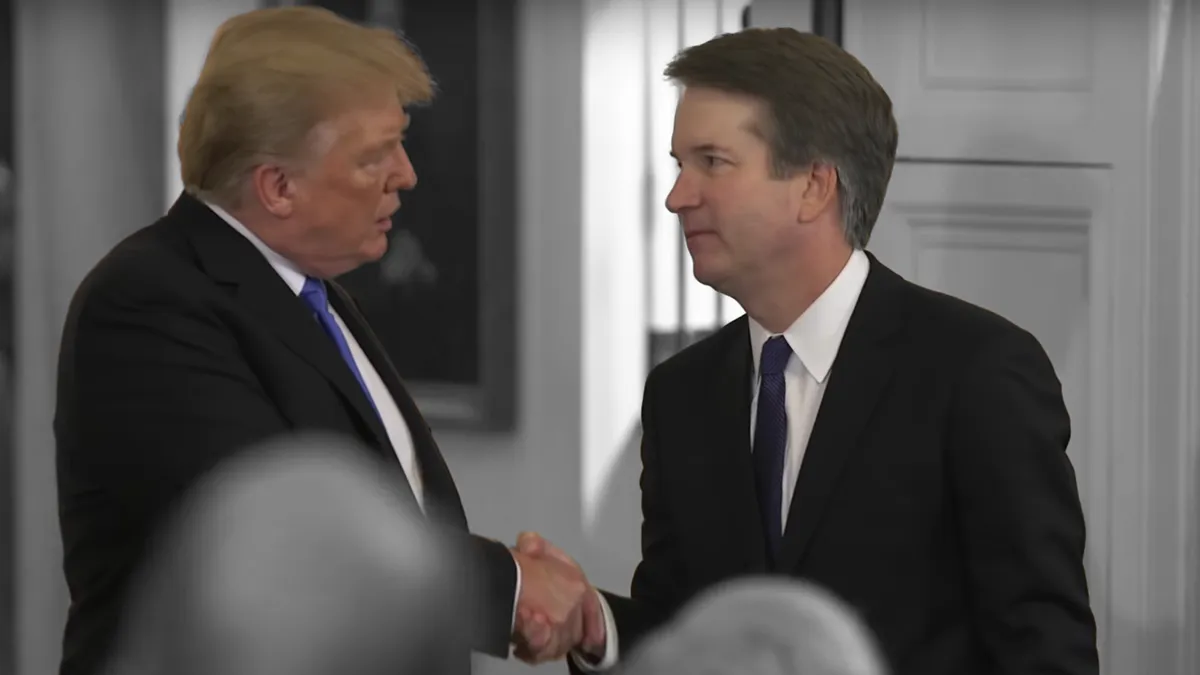Dive Brief:
-
Supreme Court nominee Brett Kavanaugh defended his environmental record during confirmation hearings before the Senate Judiciary Committee on Wednesday, saying he had acted multiple times to uphold federal air regulations despite a skepticism for regulatory overreach.
-
As a judge on the D.C. Circuit Court, Kavanaugh said he had voted to uphold EPA regulations on particulates, coal plant pollution and California's auto emissions standards. He told senators he is not skeptical of regulations in general, but of "unauthorized regulation."
-
Kavanaugh's critics questioned the presentation of his record, which they say reveals a persistent skepticism toward environmental regulation. At the D.C. Circuit, Kavanaugh voted to loosen air and water rules in 16 of the 18 cases he heard, the Environmental Working Group said in a blog post after the hearing.
Dive Insight:
Kavanaugh's Wednesday comments could give more indication as to how he will handle contentious environmental issues if the Senate confirms him to the High Court.
Responding to Sen. Orrin Hatch, Kavanaugh listed a number of cases where he said he supported environmental rules, including American Trucking Associations v. EPA, which upheld California's auto emissions limits, and National Association of Manufacturers v. EPA, which affirmed EPA's particulate rules under the National Ambient Air Quality Standards.
Kavanaugh also pointed to Utility Air Regulatory Group v. EPA, where the D.C. Circuit upheld EPA's authority to regulate greenhouse gas emissions under the Clean Air Act.
Since his nomination in July, environmental groups and liberal senators have criticized Kavanaugh for what they say is a judicial philosophy that favors industry interests over government regulations. But the judge said he only aims to curtail regulatory overreach.
"I'm not a skeptic of regulation at all," he said. "I'm a skeptic of unauthorized regulation, illegal regulation that is outside the bounds of what the laws passed by the Congress have said."
Part of that skepticism involves the Chevron doctrine, a legal philosophy that judges should defer to agency interpretation when legislative language is unclear. Kavanaugh said that he is concerned the doctrine allows the executive branch to force through policies that could not win support from Congress.
Kavanaugh's comments are unlikely to placate environmental critics or Democratic senators, who say his record shows a persistent opposition to federal regulatory powers.
In a blog post after the hearing, EWG Vice President Scott Faber questioned the cases Kavanaugh cited. In UARG vs. EPA, he wrote, Kavanaugh's concurring opinion "laid the groundwork for challenges of EPA regulations by polluting industries."
"What's more important are the cases he failed to mention," he added. "The fact is that in 16 of 18 cases, Kavanaugh has ruled in favor of more air and water pollution, and in 17 of 18 cases, he has ruled to weaken protection for endangered species."













